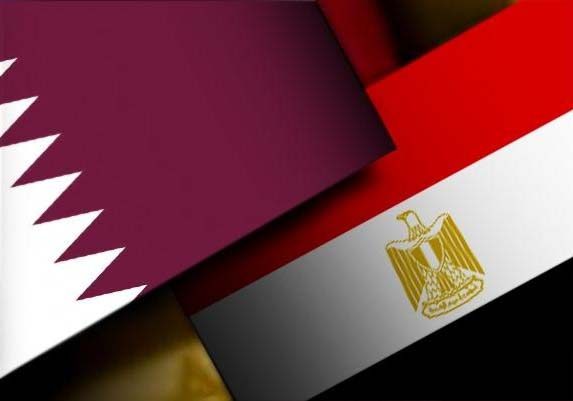
The fraying relationship between Qatar and Egypt grew more strained this weekend, after Cairo summoned the Gulf country’s ambassador over Doha’s remarks criticizing Egypt’s crackdown on the Muslim Brotherhood and its supporters.
The diplomatic rebuke came after Qatar’s foreign ministry expressed concern over the killing of protesters demonstrating in support of the Muslim Brotherhood and ousted Egyptian President Mohamed Mursi on Friday.
Qatar, which had supported the Islamist leader prior to his removal by the military in July, said Egypt’s decision to designate the Muslim Brotherhood a terrorist organization was a prelude to a policy of “shooting to kill” demonstrators.
The statement also noted that the Muslim Brotherhood ban had failed to stop protests in that country, “evidence that confrontation, security option and mobilization do not bring stability.” Qatar added that the only solution is “dialogue between Egyptian political segments without exclusion.”
Those comments prompted Egypt to summon Qatar’s ambassador – a diplomatic move used by countries to public show disapproval – and issue its own statement to “reject” the Gulf nation’s comments, which it called interference in its internal affairs.
‘Broken’ relationship
The war of words is the latest escalation in tensions between the two Arab nations, which last week sparred over the jailing of four Al Jazeera employees, three of whom remain in custody on accusations of spreading lies harmful to state security and joining a terrorist organization, according to the broadcaster.
How Sheikh Tamim bin Hamad Al Thani deals with the country’s increasingly tense relationship with Egypt may provide insights into the foreign policy directions of Qatar’s new Emir.
While Qatar is showing signs that it is inclined to be less confrontational than in recent years, one analyst said the current diplomatic row continues to put strain on its ties with Egypt.
“It’s nothing new … The relationship is very tense and broken,” Shadi Hamid, director of research at the Brookings Doha Center, told Doha News.
Background
Last year, Qatar supported Mursi’s short-lived government and provided it with billions of dollars in aid in what some analysts called an attempt to gain influence with the Muslim Brotherhood, which was then a rising political force across the region.
Qatar was left in an awkward situation following the military’s removal of Mursi last summer, but struck a conciliatory tone by sending cables of congratulations to Egypt’s interim leaders and lauding its support for the Egyptian people, saying Qatar “will remain supportive of the brotherly Arab Republic of Egypt as a leader and a pioneer in the Arab and Islamic world.”
At the time, Qatar also emphasized that its financial aid was given to Egypt as a whole and was not tied to the Muslim Brotherhood government.
But amid these overtures, Qatar continued to condemn the Egyptian army’s violent crackdown against protesters. And, in further signs of heightened tensions, Egypt
returned $2 billion that Qatar had deposited with that country’s central bank and turned down a Qatari request to increase the number of flights between the two nations.
The ongoing friction developed despite expectations by some that Qatar’s new Emir would pursue a “quieter” and less aggressive foreign policy than his father and the country’s former prime minister and foreign minister, Hamad bin Jassim Al Thani.
According to one analyst, this weekend’s diplomatic row with Egypt is indicative of how the country’s foreign policy has been evolving.
Qatar’s regional role
Hamid told Doha News that Qatar has struck a much more careful, conciliatory and pragmatic tone toward Egypt since Mursi’s ouster. Furthermore, he said, the Qatar government has been much more focused on internal affairs since Sheikh Tamim was handed power last summer.
Regardless, that’s failed to alleviate tensions between the two nations.
On the one side, the Egyptian government is “very paranoid and does not tolerate dissent at home or abroad,” he added. This make Al Jazeera – one of the lone media outlets operating in Egypt that’s critical of the regime – a target.
On the other side, Qatar continues to see itself having a distinctive role in the region, Hamid said.
The country is looking for ways to differentiate itself from larger players such as Saudi Arabia and the UAE, both of which have opposed the Muslim Brotherhood out of fear that its supporters could threaten their own stability. Both nations have also provided billions of dollars in aid to Egypt’s current government.
In this regard, the recent diplomatic spat could be seen as competition between Qatar and other Gulf countries for influence in Egypt and the broader region, Hamid said.
“Qatar is always looking for ways to put itself on the map and, for better or for worse, this is one way of getting on the map.”
Furthermore, many powerful Qataris have personal relationships with influential Islamists – some of whom are living in exile in Doha – and those ties will not break in the short term.
For now, Hamid said, both countries are are likely to continue testing the extent to which diplomatic brinkmanship can bring about policy changes, meaning ties between the nations could sour further.
“The more you have incidents like these, the harder it is to repair the relationship,” he said. “But there is nothing that can’t be repaired if you have political will on both sides.”
Thoughts?
